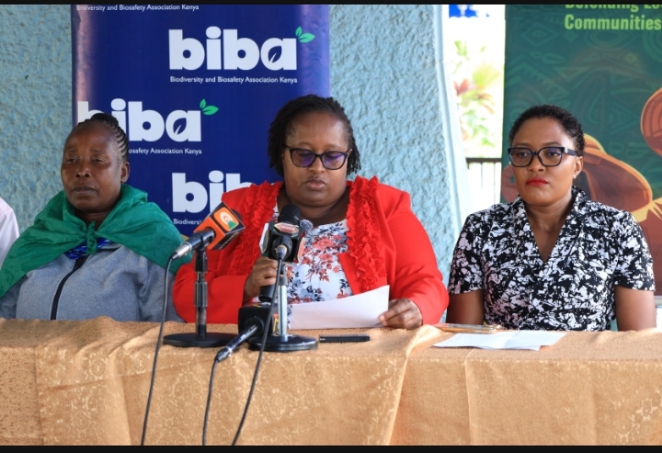The Court of Appeal has temporarily blocked the import of genetically modified (GM) crops into Kenya, sparking widespread celebration among civil society groups. Greenpeace Africa, the Kenya Peasants League and BIBA Kenya have praised the ruling, calling it a crucial step in protecting farmers’ rights and food sovereignty.
Speaking at a joint press conference at Chester House, Elizabeth Atieno, Greenpeace Africa’s food sovereignty campaigner, described the decision as a triumph. “This court ruling is a triumph for Kenyan farmers and consumers alike,” she said. “The temporary halt to GMO imports gives us a critical opportunity to reassess our agricultural policies and promote solutions that truly serve our farmers and protect our biodiversity.” Atieno emphasized the need to focus on agro-ecological practices, which she said have proven effective in ensuring food security while preserving environmental heritage.

Ann Maina of BIBA Kenya echoed these sentiments, highlighting the risks posed by corporate seed monopolies. “The struggle for seed sovereignty is a struggle against corporate control over our livelihoods and food systems,” she said. “We celebrate this decision not only as a victory for farmers, but also as an affirmation of our right to save and share seeds without interference. Farmers must control their seeds-the essential foundation of our food supply.”
Cidi Otieno of the Kenya Peasants League added that the upcoming seed case in May will be crucial in shaping Kenya’s food systems. “We are not just fighting against GMOs, but for the protection of our indigenous seed varieties, the rights of farmers to save and exchange seeds, and the preservation of our agricultural biodiversity,” Otieno said. “This is about ensuring food sovereignty for generations to come.

A farmer representative at the conference also expressed concern: “We are the custodians of seeds and food systems. If these laws criminalize our right to save and share seeds, we will be forced into permanent dependence on multinational corporations. Farmer-led seed systems are climate-resilient, cost-effective and culturally significant. These laws must recognize and protect them.
The conference highlighted agroecology as a viable alternative to GMOs, emphasizing its role in promoting biodiversity, restoring soil health and building climate resilience. Stakeholders called for unified action by farmers, civil society, and policymakers ahead of the May hearing, noting the potential for the court to set a regional precedent that could positively influence food sovereignty policies across Africa.










